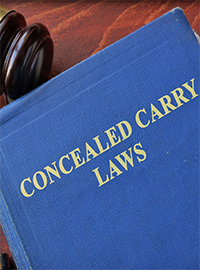 This week, the Supreme Court blew a critical opportunity to interrupt the ongoing assault by states like California against Second Amendment rights.
This week, the Supreme Court blew a critical opportunity to interrupt the ongoing assault by states like California against Second Amendment rights.
Scratch that. Chief Justice John Roberts and Justices Anthony Kennedy and Samuel Alito, all of whom joined the landmark D.C. v. Heller majority affirming the individual right to keep and bear arms, blew the opportunity. Justices Thomas and Gorsuch would've heard the case.
The opportunity in question was Peruta v. California, a prototypically defective Ninth Circuit decision condoning a California law that not only infringes upon the Second Amendment right to keep and bear arms, but nearly eliminates it.
Under California law, citizens cannot openly carry handguns outside of their homes, whether loaded or unloaded. Accordingly, concealed carry is the only alternative means by which someone can possess a handgun outside the home. Unfortunately, California law only allows concealed carry upon demonstrating "good cause" to the satisfaction of county authorities empowered to grant permits.
In Peruta, the San Diego County Sheriff imposed an extremely restrictive interpretation of "good cause," demanding that applicants show a "particularized need for self-defense that differentiates the applicant from the ordinary citizen."